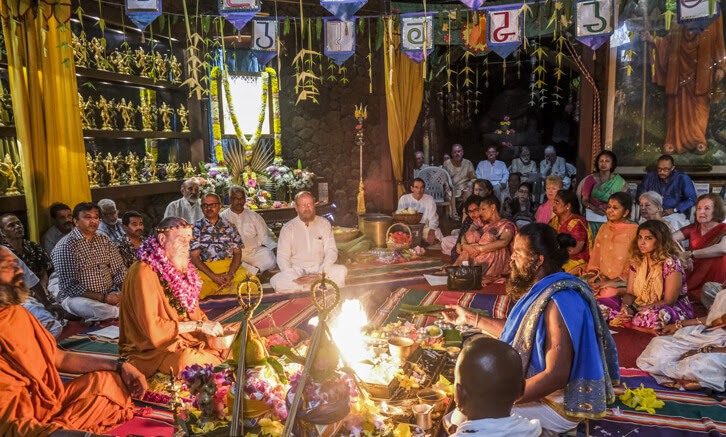Dos and Don’ts After Death in a Hindu Family for 1 Year The period following a death in a Hindu family is marked by several traditions, customs, and rituals that emphasize mourning, spiritual cleansing, and respect for the departed soul. Adhering to these practices for one year is crucial as they are believed to aid in the peaceful transition of the soul into the afterlife. In this article, we’ll explore the Dos and Don’ts After Death in a Hindu Family for 1 Year, emphasizing the critical traditions observed during this period.

The Importance of Observing Mourning Rituals for One Year
In Hinduism, the mourning period lasts for up to a year, especially for the immediate family of the deceased. The first 13 days are the most intense, filled with rituals aimed at ensuring the departed soul’s peaceful passage to the next world. However, the mourning period extends for a year with specific guidelines that the family must follow to maintain the sanctity of the soul’s journey.
Dos After Death in a Hindu Family for 1 Year
- Performing Regular Shradh Rituals
One of the most essential dos after death in a Hindu family for one year is performing regular “Shradh” ceremonies. These rituals are performed at specific intervals, including on the 13th day after death, monthly, and finally, on the first death anniversary. They are essential for appeasing the soul and ensuring its peace.
- Offering Prayers and Donations
The family should offer regular prayers for the deceased and make donations to the needy in the name of the departed soul. Charity and feeding the poor during this period are considered to bring peace and blessings to the deceased’s soul.
- Observing the Tithi or Death Anniversary
One of the most significant dos during this mourning period is observing the death anniversary, known as the “Tithi.” The family performs special prayers and offers food to Brahmins, believing that this ritual supports the soul’s progress toward liberation.
- Wearing White and Maintaining a Simple Lifestyle
The immediate family members, especially women, are often expected to wear white clothing during the mourning period, symbolizing simplicity and purity. The family should lead a simple, sad life, abstaining from celebrations or indulgences.
Don’ts After Death in a Hindu Family for 1 Year
- Avoid Celebrations and Festivities
One of the primary don’ts after death in a Hindu family for one year is to avoid participating in any festivities, including weddings, festivals, and other social events. Engaging in celebrations is considered disrespectful to the deceased.
- Refraining from Temple Visits
During the initial mourning period, especially for the first 13 days, family members are typically advised to avoid visiting temples or attending religious functions. This restriction can extend throughout the first year in some traditions.
- No Non-Vegetarian Food or Alcohol
Family members are often expected to abstain from consuming non-vegetarian food and alcohol for the duration of the mourning period. The consumption of such items is believed to interfere with the rituals and purity associated with the deceased’s soul.
- Avoid New Purchases or Renovations
During the first year after death, making new purchases, huge ones like property, or renovating the home is often discouraged. These activities are seen as signs of prosperity and are avoided to maintain a respectful mourning environment.
- No Attending of Social Events
Another significant thing to don’t after death in a Hindu family for one year is avoiding social gatherings, parties, or any event that involves joyful participation. The family’s focus should remain on the deceased and their spiritual well-being.
Conclusion: Honoring the Traditions
Adhering to the dos and don’ts after death in a Hindu family for one year is a way of showing respect to the deceased and ensuring their peaceful journey into the afterlife. These customs not only honour the soul but also help the family cope with grief by maintaining a sense of ritual and order in their lives.

Hello friends, my name is Shivam Kumar, and I am a writer, skilled in creating engaging, SEO-optimized content on online income and content creation since last two years. And I will be sharing this information form my blog.